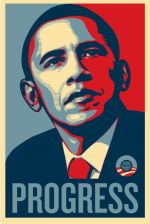
Sometimes, quotes themselves speak volumes of information. Then again, sometimes they don’t. 🙂
“Those moments of good-will go away in a heartbeat when the reality of the challenges we face sink in.” (unknown MSNBC commentator)
“It looks like a cross between Woodstock and a religious pilgrimage.” (Keith Olbermann)
Muhammed Ali possesses “telepathy?” (Olbermann)
“Bitter sweet? I think they’re going to feel more like the Romanoff’s today.” (Chris Matthews, speaking of the Cheney’s) … good one
“It almost feels like there are elements of hero-worship at points.” (Rachel Maddow) … good call

 As I was watching CNN this morning before work, they came on with the story about the Illinois Governor and possible ties with people inside Obama’s transition team and those inside his newly minted cabinet. The CNN headline read, “True Change? Or Politics as Usual?”
As I was watching CNN this morning before work, they came on with the story about the Illinois Governor and possible ties with people inside Obama’s transition team and those inside his newly minted cabinet. The CNN headline read, “True Change? Or Politics as Usual?”
I have to ask myself, where were stories like this during the campaign, you know the whole “no bias, no bull” thing that CNN pushed every night on cable news? Is Obama bringing any true political change? Or is he just bringing politicians in from one of the most politically corrupt states in recent history? And therefore, is this a negative “change” to even more corrupt politics, moreso than we have seen yet (I can hear the Bush-haters now)?
 After the election, in my own thinking, I have been working through how we as believers are to approach the preaching of the Gospel and politics. Particularly from the Reformed camp, I keep seeing two answers to this (broadly speaking, knowing there are probably more).
After the election, in my own thinking, I have been working through how we as believers are to approach the preaching of the Gospel and politics. Particularly from the Reformed camp, I keep seeing two answers to this (broadly speaking, knowing there are probably more).
One answer is that we can do both Gospel-preaching and be politically active on issues such as abortion or feeding the homeless or whatever your pet issue may be, so long as the political activism does not eclipse the Gospel message. One example of this would be someone like William Wilberforce (mp3 audio biography) who fought to abolish slavery through legislation and eventually won in British Parliament (something I am extremely grateful for).
But the other camp says we should not be politically vocal at all really for the sake of the Gospel, stating that all we need in culture is pure Gospel-preaching and living and the culture will change as the Lord uses that preaching and living as He sees fit to save people and move in the core of their being on these issues. At this point, I’m leaning toward this second response, though I sway back and forth.
During the election, I leaned toward the first answer, that we can do both Gospel preaching and at the same time be publicly involved in the political process on various issues, attempting to convince others, as best we can, of the rightness of it. However, in hind sight, and after having read a blog post by Phil Johnson, as well as this one, I’m second guessing my original stance now. I just have to think to myself, “Did others, especially unbelievers, remember what my political stance was or how great Christ is?” I feel like maybe to my shame it is the former answer.
Now of course, I know that the Gospel should take priority above politics; that is a given. But I’m still navigating through this issue and swaying back and forth on what I should do next time around or even before then. I’ll confess to everyone that sometimes, I got a little bit too excited about the whole thing. I saw through the political nonsense at times, and at other points, I got caught up in the nonsense. At times it distracted me from my pursuit of Christ in prayer, the Word and studying of theology. For this, I was clearly in error.
So how involved should we be in politics as believers, if at all? I pose this question to get ideas from others. I think about Tim Keller (along with Phil Johnson’s comments) and see the amazing fruit of not going after political issues. Through pure Gospel-preaching and living, he has transformed an area of Manhattan that would not otherwise have been possible (i.e., I highly doubt anyone in Manhattan would listen to a rant about abortion, knowing of course at the same time that it is indeed morally wrong, abhorrent and murderous, that regardless, a lot of walls would go up instantly with these hearers).
But then I think about John Piper as one of my heroes of the faith and his vocal stance from the pulpit in clearly proclaiming the evils of abortion. I also think about John the Baptist in telling Herod he was in the wrong and as a result having his head cut off. Standing up for morality can be costly, but the question is, why are you doing it? So I’m really wrestling through this issue at the moment. Any thoughts would be appreciated.
 “I’m reminded of the work of William Wilberforce in England. You may recall that in debate after debate after debate, and in election after election after election, Wilberforce was soundly and roundly defeated when he sought the abolition of slavery in the British Commonwealth. But if ever there was an exercise in perseverance, it was by Wilberforce. Wilberforce refused to give up. He simply would not walk away from being the conscience of the English nation. And he publicly testified that slavery was wrong and he promised to oppose it as long as he had breath in his body. And finally in the providence of God, Parliament woke up and abolished this unethical practice that was a plague on the English speaking world.
“I’m reminded of the work of William Wilberforce in England. You may recall that in debate after debate after debate, and in election after election after election, Wilberforce was soundly and roundly defeated when he sought the abolition of slavery in the British Commonwealth. But if ever there was an exercise in perseverance, it was by Wilberforce. Wilberforce refused to give up. He simply would not walk away from being the conscience of the English nation. And he publicly testified that slavery was wrong and he promised to oppose it as long as he had breath in his body. And finally in the providence of God, Parliament woke up and abolished this unethical practice that was a plague on the English speaking world.
We’ve gone through the same plague in the history of America, and thanks be to God slavery has finally been abolished in America. But I believe that slavery is the second most serious ethical issue that our country has ever faced. From my perspective the number one ethical issue that this nation has ever faced is the issue of abortion. Abortion is not a matter of private choice–not for the Christian who understands anything about the sanctity of life. The first century church made it very clear in their day, explicitly stating that abortion is murder.
I’ve written over 70 books. The book that had the shortest shelf life of all of my books was my book on the case against abortion. I talked to pastor after pastor and sought to understand why they weren’t using this material (for which we also made a video series). They told me, “Well, we agree with it but we can’t do it in our church.” And I said, “Why?” They responded: “It will split the congregation.” And I said, “So be it!” A million and a half unborn babies are slaughtered wantonly in the United States of America every year in the name of women’s rights. If I know anything about the character of God after forty years of study, I know that God hates abortion. And I could never vote for a candidate who supported abortion–even if I agreed with that candidate on every other policy position. If he supported abortion I would not vote for him and I urge you to do the same.
I know that abortion is not the number one issue in this campaign because it has become acceptable. Just like slavery became acceptable. But it cannot be acceptable to ethical people. The people of God have to rise up and say ‘NO’! We are not asking the state to be the church but we must say to the state, “Please be the state. God ordained you to protect, maintain, and preserve the sanctity of life, and you are not doing it.” So that has to be on your mind when you walk into that voting booth.”
Taken from this article: http://www.ligonier.org/blog/2008/10/pr … -text.html
 “We have an income tax structure today that is inherently unjust. We almost never hear anybody discuss this injustice. But when God set up a system of taxation, He did things differently. God said I’m going to impose a tax on my people and it’s going to be ten percent from everybody: The rich man and the poor man are not going to pay the same amount. The rich man’s going to pay much more than the poor man, but they’re both going to pay the same percentage. They’re both going to have the same responsibility. That way the rich man can’t use his power to exploit the poor man, saying, “I’m going to pay five percent, but you’re going to pay fifty percent.” The rich weren’t allowed to do that. Nor were the poor allowed to say, “We’re going to pay five percent and the rich are going to pay fifty percent because they can afford it.” What that is ladies and gentlemen is the politics of envy that legalizes theft. Anytime you vote a tax on somebody else that is not a tax on yourself, you’re stealing from your brother. And though the whole world does it and though it’s common practice in the United States of America, a Christian shouldn’t be caught dead voting to fill his own pocketbook at the expense of someone else. Isn’t that plain? Isn’t that clear? And until we get some kind of flat tax, we’re going to have a politicized economy, we’re going to have class warfare, and we’re going to have the whole nation’s rule being determined by the rush for economic advantage at the polls. Don’t do it. Even if that means sacrificing some benefit you might receive from the federal government. Don’t ask other people at the point of a gun to give you from their pockets what you don’t have. That’s sin.
“We have an income tax structure today that is inherently unjust. We almost never hear anybody discuss this injustice. But when God set up a system of taxation, He did things differently. God said I’m going to impose a tax on my people and it’s going to be ten percent from everybody: The rich man and the poor man are not going to pay the same amount. The rich man’s going to pay much more than the poor man, but they’re both going to pay the same percentage. They’re both going to have the same responsibility. That way the rich man can’t use his power to exploit the poor man, saying, “I’m going to pay five percent, but you’re going to pay fifty percent.” The rich weren’t allowed to do that. Nor were the poor allowed to say, “We’re going to pay five percent and the rich are going to pay fifty percent because they can afford it.” What that is ladies and gentlemen is the politics of envy that legalizes theft. Anytime you vote a tax on somebody else that is not a tax on yourself, you’re stealing from your brother. And though the whole world does it and though it’s common practice in the United States of America, a Christian shouldn’t be caught dead voting to fill his own pocketbook at the expense of someone else. Isn’t that plain? Isn’t that clear? And until we get some kind of flat tax, we’re going to have a politicized economy, we’re going to have class warfare, and we’re going to have the whole nation’s rule being determined by the rush for economic advantage at the polls. Don’t do it. Even if that means sacrificing some benefit you might receive from the federal government. Don’t ask other people at the point of a gun to give you from their pockets what you don’t have. That’s sin.
It is, of course, the American way. But we Christians should not be involved in that sort of thing. Rather we should be voting for what is right, what is ethical. And our consciences on that score need to be informed by the Word of God, not by our wallets. And so I plead with you: When you enter the voting booth, don’t leave your Christianity in the parking lot. And be bold to speak on these issues, even if it means somebody picks up a rock and throws it in your head. Because it is through tribulation that we enter the Kingdom of God. I pray for you, beloved, and for our nation in these days to come.”
Taken from this excellent article: http://www.ligonier.org/blog/2008/10/pr … -text.html
So what do you think he’s going to do? Has he changed from these radical economic positions? I doubt it.
And get this …
Powered by WordPress & Theme by Anders Norén
Thoughts on the Day After an Historic Election – James White
By David Westerfield
On November 7, 2008
In Apologetics, Christian Culture, Culture, Politics, Theology, Video